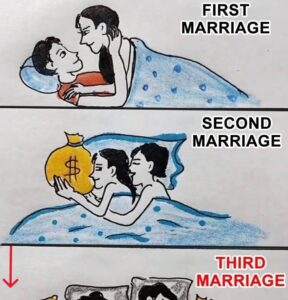How First, Second, and Third Marriages Differ

Marriage is often described as a lifelong journey, but the way people experience it can change dramatically depending on whether it’s their first, second, or even third time walking down the aisle. Each stage reflects shifting perspectives, personal growth, and the lessons carried forward from past relationships.
The First Marriage: Dreams and Discovery
A first marriage is usually fueled by hope, romance, and a vision of happily-ever-after. Many couples enter this stage with high expectations, often shaped by cultural ideals or youthful optimism. While the excitement is undeniable, the lack of experience can make navigating real-life challenges difficult. Learning how to compromise, communicate, and adapt often comes through trial and error.
The Second Marriage: Caution and Clarity
By the second marriage, most people have gained valuable insight into themselves and what they truly need in a partner. These unions are often approached with a mix of optimism and caution. There’s a clearer sense of boundaries, stronger communication skills, and a better grasp of financial and family dynamics. However, second marriages can bring new complexities, such as blended families, lingering emotional scars, or trust issues. The difference is that individuals are usually better equipped to handle these challenges with maturity.
The Third Marriage: Connection and Contentment
For those who marry a third time, the priorities tend to shift even further. After years of reflection and experience, the focus is less on grand ideals and more on building a life of peace, understanding, and companionship. Third marriages often prioritize emotional support, shared values, and enjoying life together rather than traditional roles or outside expectations. It’s less about proving anything to the world and more about creating a partnership that simply works.
The Common Thread
No matter the number of marriages, success depends on the same core principles: honest communication, emotional growth, and the willingness to adapt as life changes. Each union offers a chance to learn, heal, and deepen one’s capacity to love.